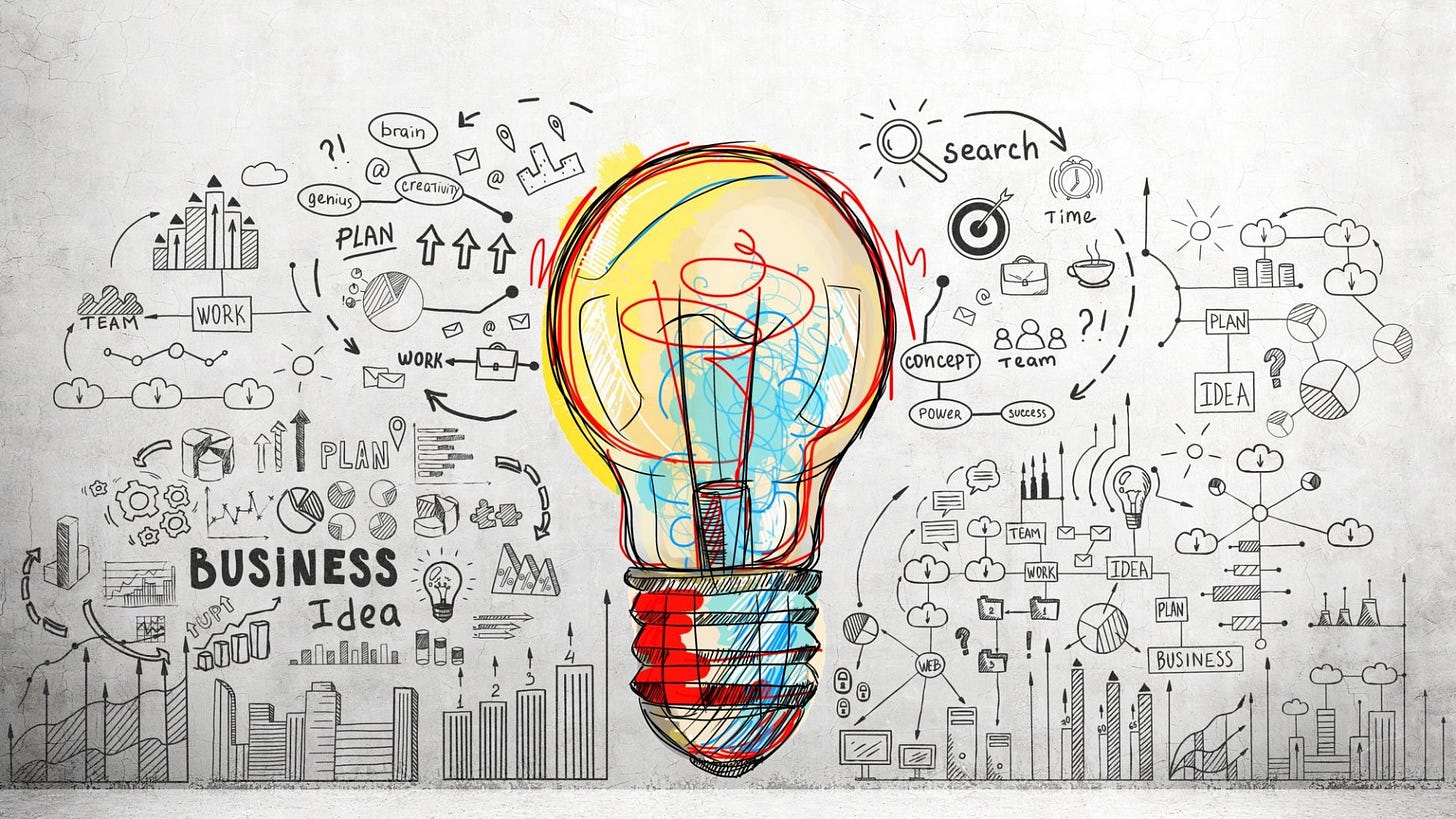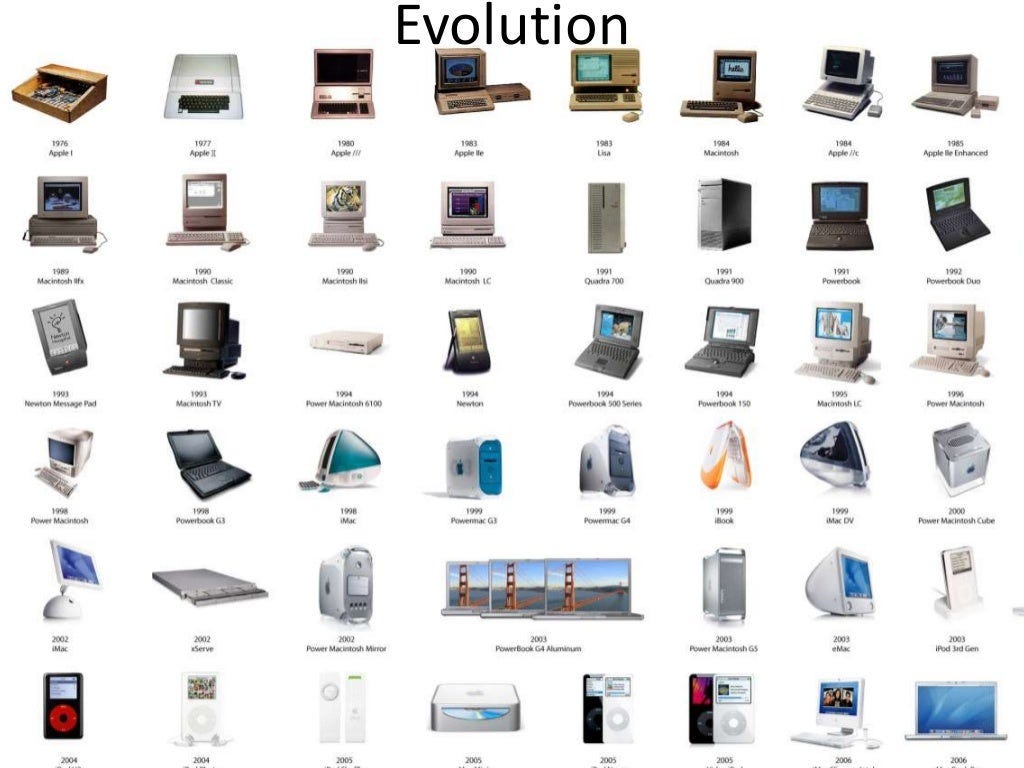VOL 36: INVENTION & INNOVATION- Part 2
Hey Friends 🤓,
Trust you all had a great week 🤗?
Today at a Glance:
Quote of the WeekInvention vs Innovation Examples
The Light Bulb
Xerox
Microprocessor
The Role of Innovation in our SocietyInnovation Vs Invention: Which Is More Important?Face of the WeekBusiness & StartupsRandom FactsTweet of the Week
Quote of The Week
"It is not as though I have the absence of fear, I feel it quite strongly. But there are times when something is important enough, you believe in it enough, that you do it in spite of the fear."
—
Elon Musk
Invention Vs Innovation Examples
The Light Bulb
Contrary to popular belief, Thomas Edison did not "invent" the lightbulb, but rather he improved upon a 70-year-old idea.
Many other inventors created their versions of light bulbs. While they all showed promise, most, if not all, proved too expensive to produce or had other issues that prevented them from becoming commercially viable.
Edison’s lightbulb improved upon earlier lightbulb inventions by other inventors. In 1879 he was able to produce a reliable, long-lasting source of light and became the businessman genius that was able to take it from the lab to the marketplace.
Xerox
Similarly unfortunate was the research carried out by Xerox (company) in its Palo Alto Research Center (PARC). Xerox had a hard time turning its own inventions into cash. Both the computer mouse and the graphical user interface, without which the mouse would be useless, were developed largely at Palo Alto Research Center (PARC) in the 1970s.
But it was not until Apple made real innovations out of both the mouse and graphical user interface with the Macintosh computer almost 10 years later that they become standards for computers.
The Microprocessor
Another example of the difference between innovation and invention is the microprocessor.
Ted Hoff invented the microprocessor. But taken by itself, the microprocessor was nothing more than another part on a circuit board. It is what was done with that part, the hundreds of thousands of products, processes, and services that have evolved from the invention of the microprocessor – that requires innovation.
Steve Jobs would never have been able to completely turn the market upside down with Apple if Ted Hoff, that Intel engineer, hadn’t invented the first microprocessor in 1971. Hoff’s microprocessor, which was as small as a thumbnail, could run computer programs, remember information, and manage data all in one, paving the way for what we know as the personal computer.
Few will know Hoff’s name nowadays, but in order to create something irresistible to the market, you need to have a brilliant invention to start with.
There are many other inventions vs. innovation examples besides these.
Innovation really is the core reason for modern existence.
The Role of Innovation in our Society
In addition to the fact that innovation allows organizations to stay relevant in the competitive market, it also plays an important role in economic growth. The ability to solve critical problems is dependent on new innovations, and developing countries, in particular, require it more than ever.
Over the last decades, innovation has become a significant way to combat critical social risks and threats.
For example, energy-driven consumption of fossil fuels has resulted in a rapid increase in CO2 emissions since the Industrial Revolution, disrupting the global carbon cycle and contributing to planetary warming.
Innovation is important to the advancement of society as it solves these kinds of social problems and enhances society’s capacity to act.
It's responsible for resolving collective problems in a sustainable and efficient way, usually through the use of new technology. These new technologies, products, and services address a social need while also improving capabilities and making better use of assets and resources.
In order to be able to solve these kinds of societal problems, private, public and non-profit sectors are involved to bring innovative ideas and innovate.
Innovation Vs Invention: Which Is More Important?
While innovation and inventions may have seemed similar to you before, I have now explained in detail the differences between innovation and invention.
Inventions Importance
Inventions require a completely new concept.
Inventions provide evidence of the credibility of scientific knowledge.
Inventions should come first.
Inventions are the building block for innovation
Innovations Importance
Innovation brings betterment to the existing concept, service or product.
Innovation contributes significantly to the growth of a company.
Innovation is always new but with a changed concept or pattern.
Innovation gives a technical/competitive edge.
Innovation always occurs when there is a need to bring change to an organization.
If we had to choose between innovation and invention, which would be more important? Can we?
Let us conclude that both play a critical part in a company's long-term value creation.
Airbnb CEO Brian Chesky in a tweet recently announce the biggest change to Airbnb in a decade. The same fundamental idea of connecting people who want to rent out their homes with people who are looking for accommodations in specific locations but with added new features.
FACE OF THE WEEK
CHARLES BABBAGE (1791 – 1871)
He was an English polymath, a mathematician, philosopher, inventor and mechanical engineer, Babbage pioneered the concept of a digital programmable computer.
In 1812 Babbage helped found the Analytical Society, whose object was to introduce developments from the European continent into English mathematics. In 1816 he was elected a fellow of the Royal Society of London. He was instrumental in founding the Royal Astronomical (1820) and Statistical (1834) societies.
Charles Babbage is remembered for having developed plans for the Analytical Engine, the forerunner of the modern digital computer. In that device, he envisioned the capability of performing any arithmetical operation on the basis of instructions from punched cards, a memory unit in which to store numbers, sequential control, and most of the other basic elements of the present-day computer.
Babbage is also known for his association with mathematician Ada Lovelace, who translated a French paper about Babbage’s Analytical Engine and, in her own annotations, published how it could perform a sequence of calculations, thereby creating the first computer program.
Business & Startups
Okra is a Nigerian-based fintech company that allows for the exchange of real-time financial information between customers, applications, and banks through an API and digitalizing financial services across the continent.
It does this by helping people connect their bank accounts to lending and banking apps, as well as giving banks to easily access customers’ financial information/data.
Okra — which was founded in 2019, by Fara Ashiru Jituboh and David Peterside, is described as “the operating system for financial services”. Companies of all sizes — from startups to multinational banks use Okra to build digital financial platforms & services.
Company's website: okra.ng
Random Facts
Isaac Newton predicted the world will end in 2060.
Tweet of The Week


Enjoyed this piece? Please let me know by hitting the ❤ button. It brightens my day to see if my readers enjoy the content (it really does!). Thank you so much!
Enjoy your weekend.






